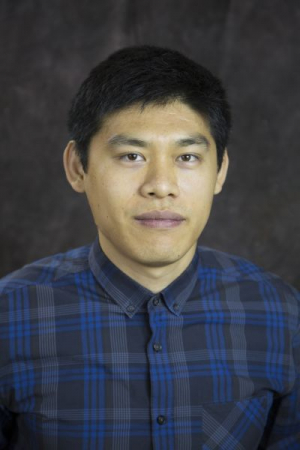Doctoral student Hongzhou Wang, from the Geosensing Systems Engineering & Sciences (GSES) graduate studies program, recently defended his dissertation on, “Fusion of Full Waveform LiDAR and Passive Remote Sensing for Improved Land-Cover Classification.” Land cover classification is a crucial step in interpreting remote sensing data, and the accuracy of the classification determines the reliability of the product for further downstream applications. Hyperspectral sensors have been widely utilized for classification because of the discrimination afforded by their rich spectral information and high resolution in both the spatial and spectral domains. Additionally, lidar data has gained increased interest for use in classification, because it provides precise 3D data with information regarding target backscattering properties. With the introduction of full waveform lidar (FWL), the possibility of using lidar for target discrimination has been enhanced due to the additional structural information acquired. The geometrical information and backscattering properties measured by FWL is complementary to the reflectance characteristics recorded within hyperspectral imagery (HI). The fusion of FWL and HI is, consequently, desirable. Hongzhou’s research aimed to build a framework for fusing FWL and HI while demonstrating the application of combined datasets for land cover classification. Feature extraction methods and classifier designs were proposed after considering characteristics of both datasets, and performance of the proposed methods were evaluated. Experimental results showed that the suggested methods were successful in extracting features from reconstructed FWL data.
Hongzhou has accepted a position at CGG as a Seismic Imager. Dr. Craig Glennie was Hongzhou’s graduate advisor. Congratulations and good luck!


